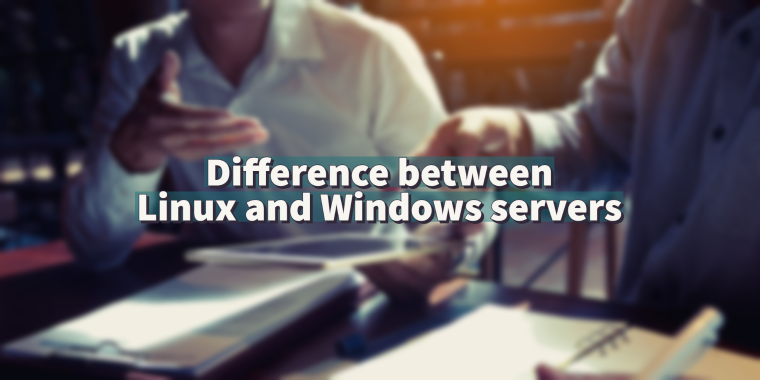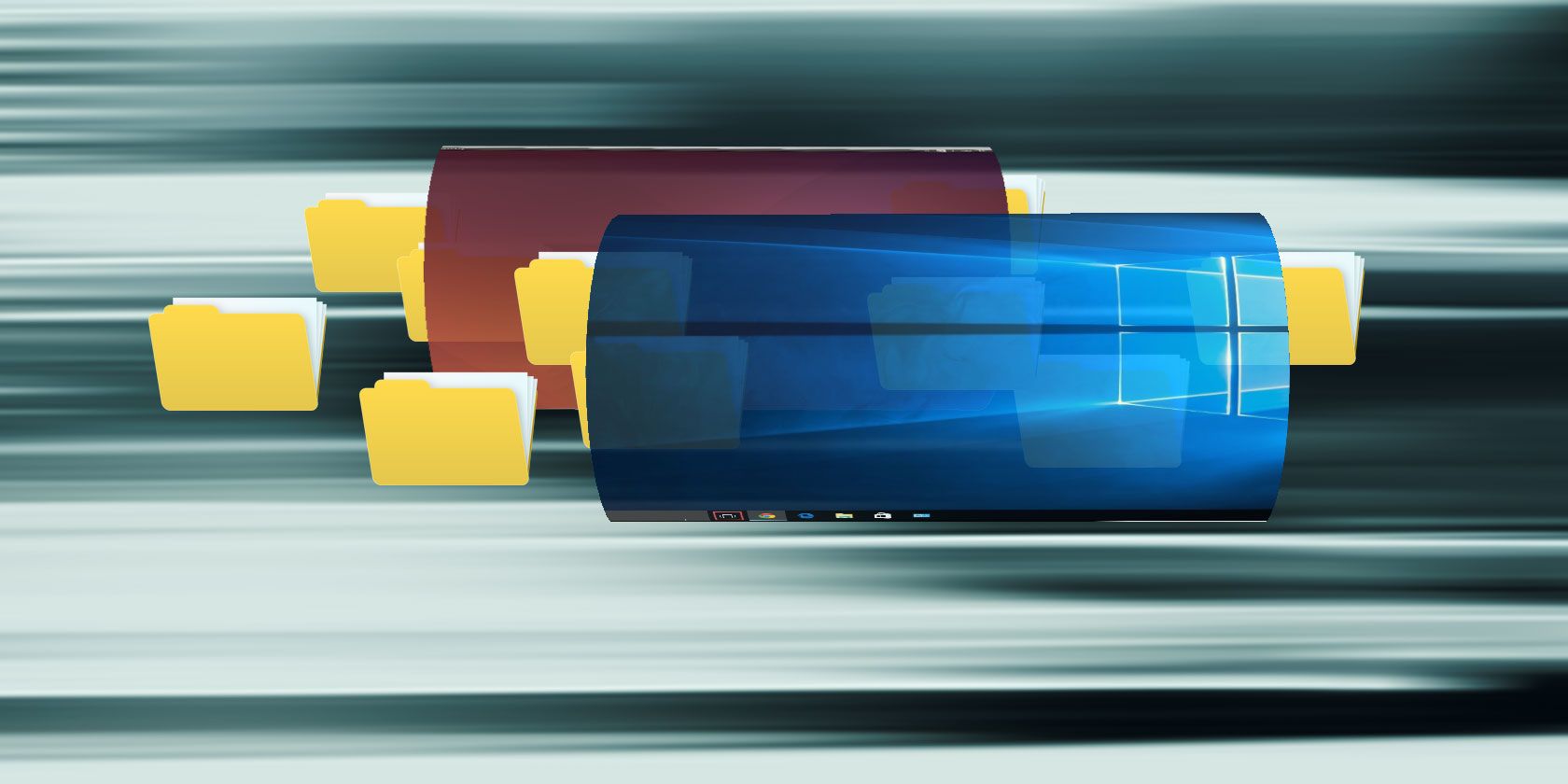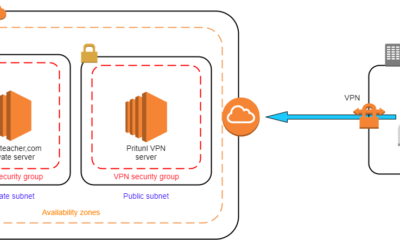DevOps
Linux Vs Windows: Key Differences Explained – Uncover the Truth
Are you finding it hard to choose between Linux and Windows for your computer needs? You’re not alone.
Many people face this dilemma, unsure which operating system will best serve their needs. Whether you’re setting up a new computer or considering a switch, understanding the key differences between Linux and Windows can be crucial. Imagine having the power to make your computer work exactly the way you want it to.
Linux offers you this flexibility with its open-source nature, while Windows provides a user-friendly experience with widespread software support. But which one truly fits your lifestyle and needs? This article will guide you through the major differences between these two popular operating systems. By the end, you’ll have a clearer picture and be equipped to make an informed decision. So, let’s dive in and discover which OS can make your tech life smoother and more enjoyable.
User Interface
The user interface is a crucial aspect of operating systems. It dictates how users interact with their computers. Linux and Windows have distinct approaches. Each offers unique advantages. Let’s dive into their differences.
Customization Options
Linux stands out with its customization capabilities. Users can personalize almost every aspect of the interface. Different distributions offer varied graphical environments. From icons to window managers, options are plentiful. This flexibility is ideal for tech-savvy users.
Windows provides fewer customization options. The interface is more fixed. Users can change themes and colors. But deeper modifications require third-party tools. Windows focuses on consistency and simplicity in design.
Ease Of Use
Windows is known for its user-friendly interface. It’s straightforward and intuitive. New users find it easy to navigate. Menus and icons are familiar to many. This simplicity is why Windows is popular worldwide.
Linux can be challenging for newcomers. Its interface varies by distribution. Some are designed for beginners, others for experts. Tutorials and forums help users learn. Once mastered, Linux offers great power and control.
Performance
Performance is a major factor when choosing an operating system. Linux and Windows each have unique characteristics. Understanding their performance differences can help in making an informed decision.
System Requirements
Linux is often lighter on system requirements. It can run smoothly on older hardware. This makes it a great choice for budget-conscious users. Windows, on the other hand, often needs more powerful hardware. Especially for newer versions, the demands are higher. This can lead to higher costs for upgrades or new purchases.
Resource Management
Linux excels in resource management. It efficiently uses CPU and memory. This leads to faster performance, even on less powerful systems. Linux distributions are often optimized for specific tasks. This can further enhance performance. Windows sometimes struggles with resource management. It may use more memory and CPU, causing slower speeds. This can affect multitasking and overall user experience.
Security Features
Linux offers robust security with its open-source nature, allowing users to inspect and modify code. Windows relies on frequent updates and built-in security tools to protect against threats.
Security is a crucial factor when choosing between Linux and Windows. Both operating systems offer unique security features. Their approaches to security differ significantly, affecting user experience and trust. Understanding these differences is important for making informed decisions.Vulnerability Management
Linux has a strong community for vulnerability management. Developers actively monitor and fix security issues. Users receive updates quickly, ensuring a secure environment. Open-source nature allows many eyes to spot vulnerabilities. This results in prompt identification and resolution. Windows relies on a dedicated team for managing vulnerabilities. Microsoft releases regular patches on “Patch Tuesday.” These updates address known security issues. Windows has improved its vulnerability management over time. Users need to ensure updates are installed promptly for optimal security.Access Controls
Linux offers robust access controls through user permissions. Users have control over who accesses their files. The root user has comprehensive control over the system. This minimizes unauthorized access to sensitive data. Windows uses a different approach for access controls. It employs User Account Control (UAC) to manage permissions. UAC prompts users before making significant changes. This helps prevent unauthorized modifications. Windows also offers file encryption for added security.
Credit: www.microteklearning.com
Software Compatibility
Software compatibility is a significant factor in choosing an operating system. It determines the range of applications and tools you can use. Both Linux and Windows offer unique software environments. Understanding their differences helps in making an informed decision.
Application Availability
Windows boasts a vast library of applications. Most software developers create Windows versions first. From productivity tools to games, Windows users have a wide variety. Linux, in contrast, offers fewer applications. Many popular apps do not have a Linux version. Yet, Linux users access many open-source alternatives. Some of these alternatives match or exceed their Windows counterparts.
Open Source Vs Proprietary Software
Linux is known for its open-source software. This means users can modify and share the software freely. Open-source software often encourages community collaboration. It leads to innovative solutions and improvements. Windows, on the other hand, primarily offers proprietary software. Proprietary software restricts access to the source code. Users cannot modify it as they wish. This model ensures a consistent user experience. But it limits customization and flexibility.
Cost Considerations
Choosing between Linux and Windows involves weighing cost considerations. Both systems have different pricing structures. Understanding these differences is crucial. You want to make an informed choice.
Licensing Fees
Windows requires purchasing a license. These fees can be significant. Businesses often pay more for enterprise editions. Microsoft charges per user or device. This can add up quickly. Linux is mostly free. It offers open-source software. Users avoid licensing fees. This can save a lot of money. Linux distributions like Ubuntu are free to download. You get more flexibility without extra costs.
Maintenance Costs
Windows maintenance can be expensive. It often requires regular updates. Professional IT support may be needed. Costs can increase with system complexity. Linux maintenance is generally cheaper. It has fewer security vulnerabilities. Many updates are community-driven. Skilled users can manage Linux systems easily. This reduces the need for external support. Companies can save by using Linux.

Credit: www.makeuseof.com
Support And Community
Linux offers strong community support with forums and tutorials. Windows provides professional support through official channels and user groups. Each has unique resources for troubleshooting and learning.
When choosing between Linux and Windows, support and community are critical factors to consider. These two operating systems offer different types of support that cater to various user needs. Whether you’re a hobbyist or a business professional, understanding the support structure can significantly influence your decision.User Community
Linux thrives on its vibrant and diverse user community. It’s like having a group of friends ready to help you out whenever you stumble upon a problem. Users regularly share tips, troubleshoot issues, and develop tools, making it easier for newcomers to adapt. Online forums, such as Reddit and Stack Exchange, are buzzing with activity. You can quickly find solutions to common problems, or even niche ones, with a simple search. The collaborative spirit is infectious—many users feel motivated to contribute back to the community once they gain some experience. On the other hand, Windows has a more segmented user community. Although large, it’s not as tightly knit as Linux’s community. Most Windows users rely on official support channels rather than community-driven forums.Professional Support
For businesses, professional support can be a game-changer. Windows provides a robust professional support system through Microsoft. You can access 24/7 customer service, ensuring that critical issues are resolved swiftly. Consider a scenario where your company relies on a specific Windows application. If it breaks, Microsoft’s support team is just a call away to assist you in getting back on track. Linux also offers professional support, but it’s often provided by third-party companies like Red Hat or Canonical. These services usually come with a subscription fee. However, they offer tailored solutions that might be more flexible than Microsoft’s one-size-fits-all approach. Which type of support would suit you best? If you’re someone who enjoys the DIY approach, the Linux community might be your best friend. But if you prefer reliable, professional assistance, Windows might offer the peace of mind you need.Use Cases
Exploring Linux and Windows unveils key differences in use cases. Linux offers customization and security for tech enthusiasts, while Windows provides user-friendly interfaces for everyday tasks. Understanding these distinctions helps choose the right system for specific needs.
When deciding between Linux and Windows, understanding their use cases can significantly impact your choice. Both operating systems have their strengths and are tailored to different needs and environments. Whether you’re a casual user or managing a large enterprise, knowing which system aligns with your requirements can lead to enhanced productivity and satisfaction.Personal Use
For personal use, Windows often takes the lead due to its user-friendly interface and widespread software compatibility. It’s ideal for those who want seamless experiences with popular applications like Microsoft Office, gaming, and multimedia editing. Linux, on the other hand, shines for tech enthusiasts who value customization and control over their systems. It’s a great choice if you enjoy tinkering with your OS or need a secure environment for browsing and personal projects. Have you ever considered how much control you want over your system’s inner workings?Business And Enterprise
In the business world, Windows dominates due to its robust enterprise solutions and support. Companies often rely on Windows for its compatibility with enterprise software and IT management tools. It’s particularly beneficial for businesses that depend on specific industry-standard applications. Linux is favored by businesses that prioritize security and cost-efficiency. Its open-source nature can reduce licensing costs and offers flexibility in server management. Think about the long-term savings and security benefits that could be crucial for your business infrastructure. When evaluating Linux and Windows, consider how each aligns with your personal or professional objectives. The right choice can enhance your daily operations and future growth. What’s your priority—ease of use, customization, or cost-efficiency?Customization Flexibility
Customization flexibility is a key factor in choosing an operating system. Both Linux and Windows offer unique customization options. This flexibility affects user experience and productivity. Understanding these differences helps in making an informed choice.
User Preferences
Linux offers extensive customization for personal use. Users can change almost every aspect of their system. From the desktop environment to the system’s core functions, everything is adjustable. This flexibility suits users seeking a personalized experience.
Windows allows less customization. Users can change themes and settings, but options are limited. Windows aims for a consistent user interface. This suits users who prefer simplicity and uniformity.
Developer Needs
Linux is favored by developers for its open-source nature. Developers can modify the code to fit their needs. This openness encourages experimentation and innovation. Many programming tools are also available for Linux.
Windows is popular for its comprehensive development tools. It supports a wide range of software development environments. Microsoft Visual Studio is a powerful tool for Windows developers. Yet, Windows offers less flexibility in modifying the core system.

Credit: easy-peasy.ai
Frequently Asked Questions
What Is The Key Difference Between Linux And Windows?
Linux is open-source, allowing extensive customization, while Windows is proprietary with user-friendly interfaces and broader software compatibility.
What Is The Windows Key Equivalent In Linux?
The Windows key equivalent in Linux is often the “Super” key. It typically performs similar functions, like opening the main menu. Its location varies based on the keyboard layout and distribution, but usually, it’s near the Ctrl and Alt keys.
What Are The Key Advantages Of Linux Over Windows?
Linux offers better security, customization, and performance. It’s free, open-source, and supports older hardware effectively. Linux provides a stable environment for development and server management.
What Are The Key Differences Between Linux And Windows File Systems In Forensic Investigations?
Linux uses ext4, while Windows uses NTFS. Linux supports inode metadata, aiding file recovery. Windows features the Master File Table (MFT) for file tracking. Linux’s permissions are more granular, enhancing security analysis. Windows uses the Windows Registry, offering different forensic insights.
Both systems require distinct forensic tools for investigation.
Conclusion
Choosing between Linux and Windows depends on your needs. Linux offers flexibility and customization. Windows provides user-friendly interfaces and wide software support. Both have strengths. Linux is ideal for developers and tech-savvy users. Windows suits general users and gamers. Consider your priorities.
Think about security, ease of use, and software compatibility. Linux might require learning. Windows is more intuitive. Each has unique benefits. Explore both systems. Decide which fits your lifestyle and tasks best. Your decision should match your goals. Make an informed choice for a smoother experience.
-

 DevOps6 years ago
DevOps6 years agoSaltstack Tutorial for beginners [2025]
-

 DevOps6 years ago
DevOps6 years agoHow to build a Docker cron job Container easily [2025]
-

 Linux7 years ago
Linux7 years agomail Command in Linux/Unix with 10+ Examples [2025]
-

 DevOps6 years ago
DevOps6 years agoDocker ADD vs COPY vs VOLUME – [2025]
-

 DevOps6 years ago
DevOps6 years agoHow to setup Pritunl VPN on AWS to Access Servers
-

 Linux7 years ago
Linux7 years agoGrep Command In Unix/Linux with 25+ Examples [2025]
-

 Linux7 years ago
Linux7 years agoFind command in Unix/Linux with 30+ Examples [2025]
-
Linux6 years ago
How To setup Django with Postgres, Nginx, and Gunicorn on Ubuntu 20.04

